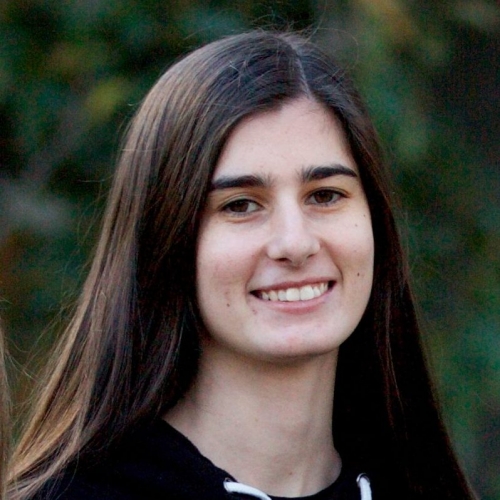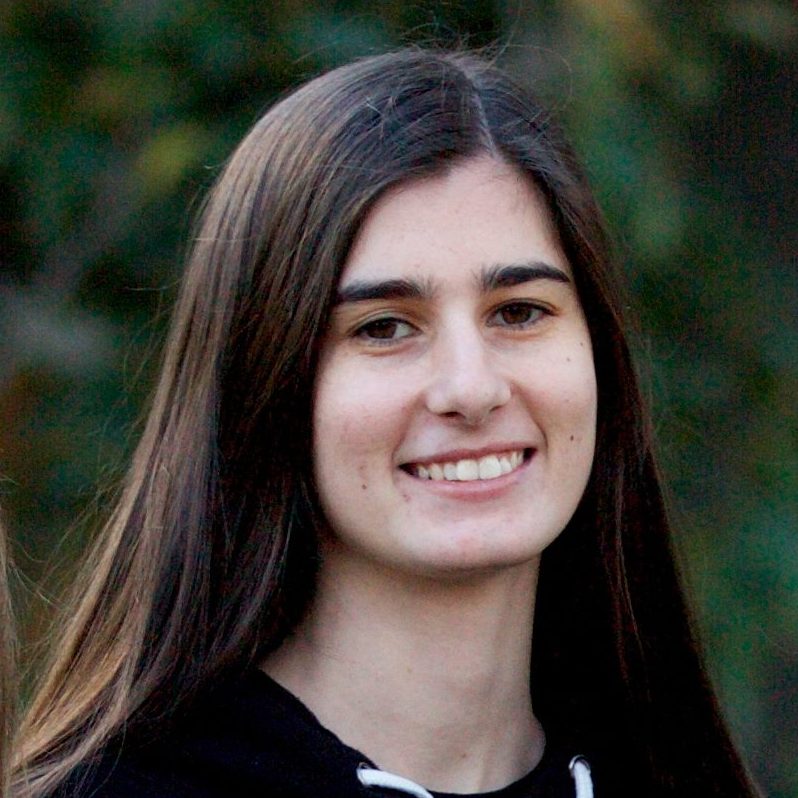
Saskia Van Ryt
The University of Queensland
Saskia Van Ryt completed her Bachelor of Science (Honours) in 2016 at the University of Queensland and is continuing at the university to pursue a PhD. She originally majored in Mathematics and Computer Science and is currently researching optimisation topics from a computer science perspective. Her Honour’s project involved operations research and its application on flood disaster scenarios, and currently she is researching Evolutionary Computation and its application to different problem types.
Can you give me a quick overview of the type of mathematics you are studying and its potential impacts for the broader community
Currently I am studying evolutionary computation, and investigating how to approach problems where the number of components to the problem is unknown, but that is a new topic for me. Previously, I applied operations research to flood disaster scenarios to optimise for rescue and recovery outcomes.
You attended AMSI Optimise, what drew you to this event? What was the most valuable part of AMSI Optimise for you in terms of furthering your career in mathematical sciences?
I was drawn to the event because of the focus on applying optimisation techniques to disaster scenarios, the collaboration between academia and industry, and the discussion of women in optimisation. As I am very early in my career, the event was a great way for me to network and be introduced to the optimisation community, and to get an idea of what is currently being done.
Did this event lead to any new projects, collaborations? What were some outcomes in terms of your work?
The event lead to an increase in my reading list, for sure. I learnt a lot at the event and am still reading material discussed during the seminars.
The key aim of Optimise is to strengthen research-industry collaboration within this key mathematics innovation space. How effective was this event in stimulating such discussion and opportunities?
I felt that a lot of good points were raised. There was discussion about why research-industry collaboration can be difficult, both to initiate partnerships and to produce successful outcomes, and we were given the opportunity to see how partnerships played out during various talks. Being so early in my career, it was a very valuable learning experience for me, and I feel more prepared to pursue industry partnerships when the time comes. I personally thoroughly enjoyed the industry speakers, as it is very interesting to hear from the other side.
What do you think are the key challenges for Australian industry-research collaboration within optimisation? What needs to happen to strengthen these linkages?
One of the key challenges is communication. Firstly, mathematicians and non-mathematicians speak in very different ways about optimisation problems. When solving problems, it is important to establish things like constraints and objective functions, which aren’t very clear to people who haven’t worked in optimisation before. Secondly, there is no strong communication channel for academics and industry. It can be very difficult for academics to approach companies and government agencies and get them to trust in optimisation techniques, so many partnerships can fall through.
How important was receiving a CHOOSEMATHS grant in terms of your ability to attend and fully participate in the AMSI Optimise 2018 sessions throughout the week?
It allowed me to attend four days of the event without an impact on my financial situation. I might not have been able to attend the event and learn so much without the grant.
How important are initiatives such as the CHOOSEMATHS Grants in terms of fostering the participation and achievement of women in mathematics, particularly in terms of access to networking opportunities and further training opportunities?
Unfortunately, it can be more difficult for women to travel and interrupt their schedule because of extra responsibilities they may have. I’m glad initiatives like this exist. Additionally, in male dominated fields, one can feel out of place. It is so encouraging to see other women in the field.
In what ways has the experience impacted your maths studies? Has it influenced the direction of your research?
Perhaps! But things move slowly. Currently for my project I need to collect different problem types, and the event has been very inspiring.
The CHOOSEMATHS Grants are part of a broader program being delivered by AMSI Schools with support from BHP Billiton to turn the tide on Australia’s maths deficit and strengthen maths education and participation of women across the discipline. What do you see as the big challenges facing maths in Australia, particularly for women?
Interventions need to happen much earlier on. Young girls shy away from mathematics because it is seen as a “boy’s subject”. So, young girls participate less and are less enthusiastic about mathematics, which means their performance is less than it could be. This continues all the way into tertiary education. Young girls need to be shown more female role models in mathematics.
A big problem is that mathematics is portrayed as ‘boring’ and ‘difficult’ in various media, which young people cannot hide away from. It would have a great effect on young children on all genders if mathematics was seen as fun. That’s why I studied it – mathematics was fun for me!
Did you always want to pursue a career in maths? Were you encouraged to study these subjects at school?
I spent most of my year 6 maths classes reading Harry Potter books, despite performing well on tests. My teacher noticed this and realised it was because I found it easy. He gave me material from the grade above which I found fun and challenging. From then on, I was very enthusiastic about mathematics and always enjoyed solving problems. The second breakthrough happened in my third year at university. I wasn’t really sure where I wanted to go with mathematics, and I had a class that I just was not enjoying. I spoke with my friends about it and ended up making the bold decision to drop a course in the second week and pick up a different one that they said I would enjoy. That course was called ‘Operations Research’ and it was life changing! I was always curious about how mathematics could be used to solve those sorts of real life problems, and finally I had an answer. I just think it’s so cool!
Where do you see yourself in five or ten years time?
Doing something to do with mathematics and computer science. Whether that’s in industry or academia, who knows?
Any other feedback/comments you would like to provide on the CHOOSEMATHS grant or AMSI Optimise?
I had an incredible time, met many people, and learnt so much. Thank you very much for this opportunity.

